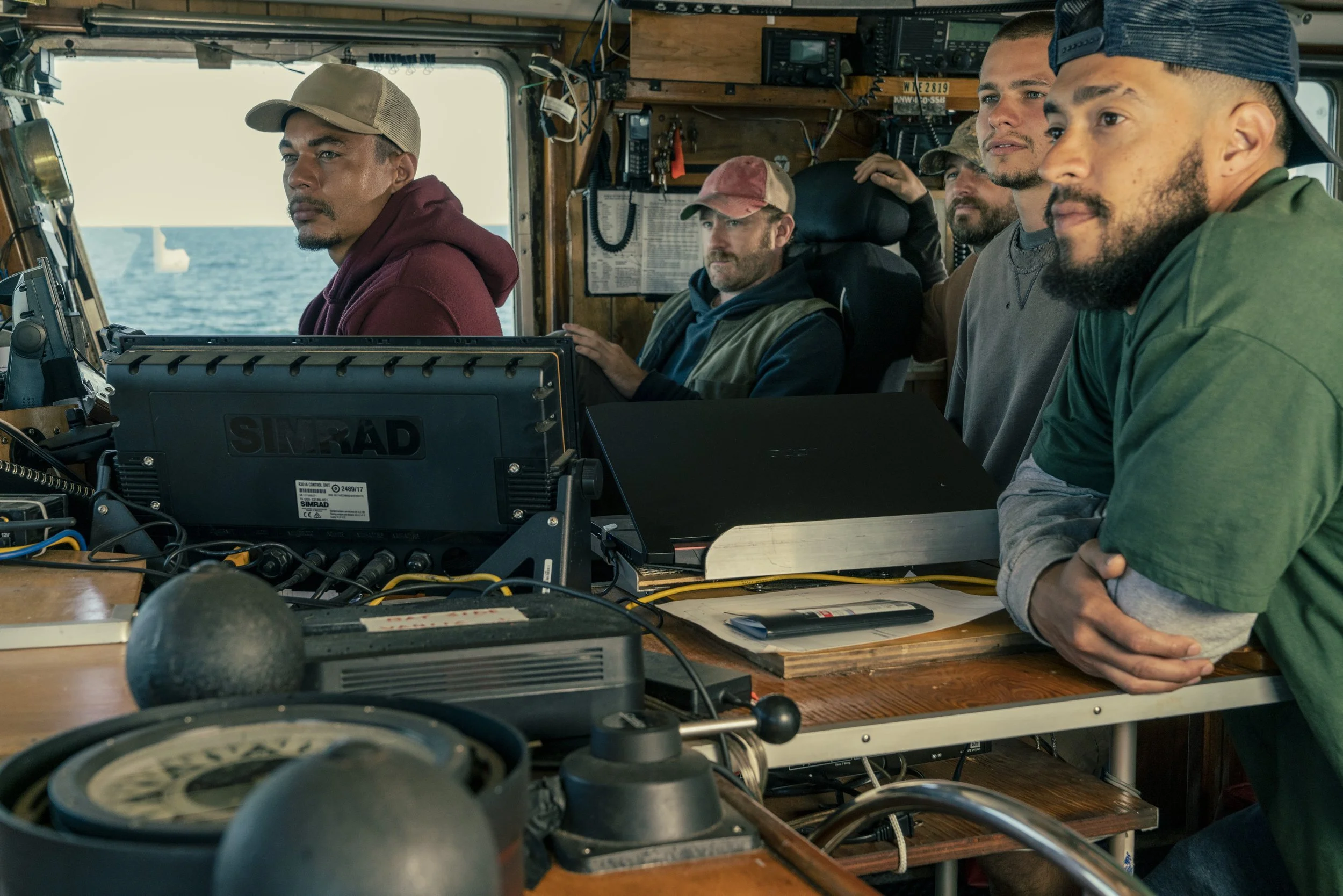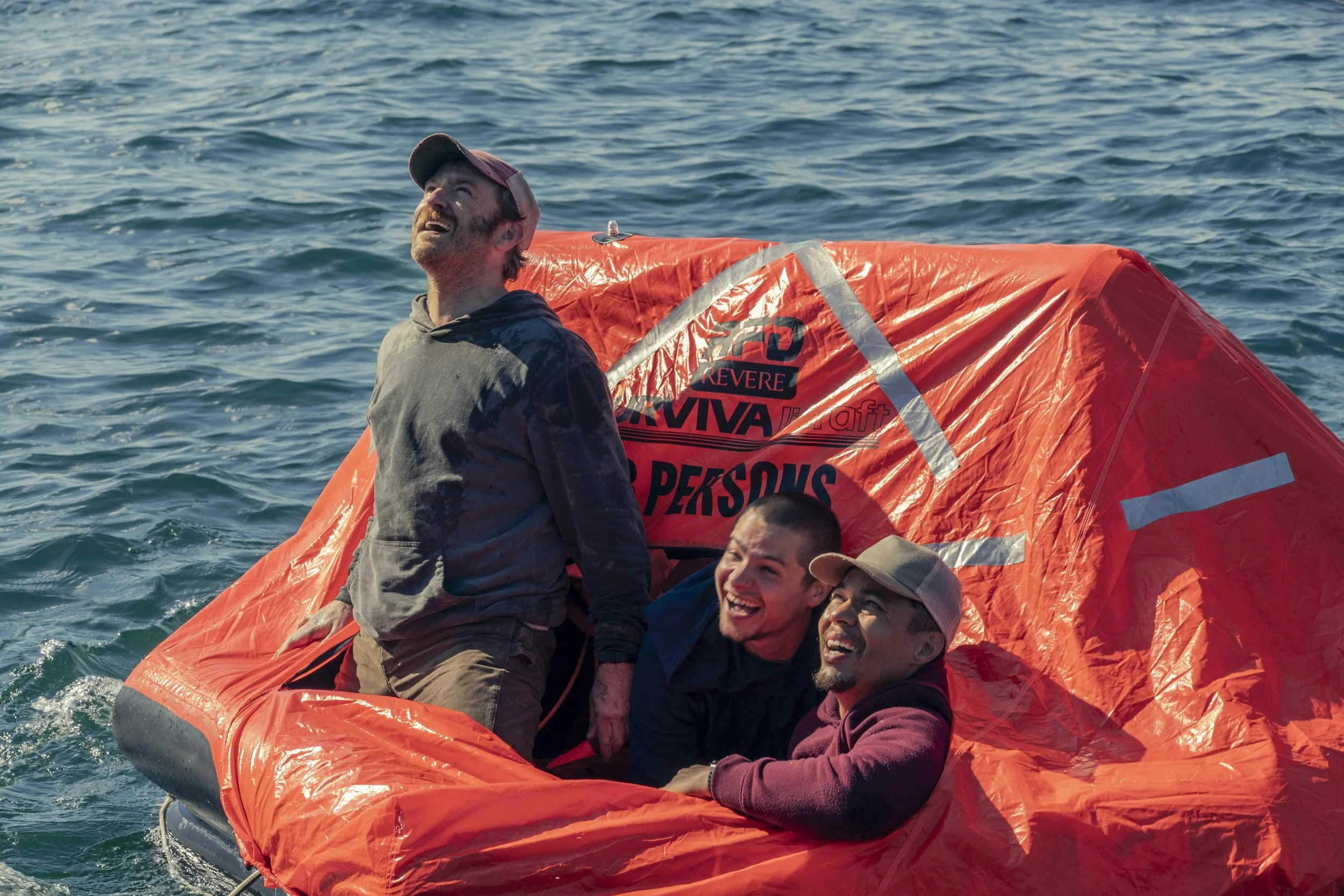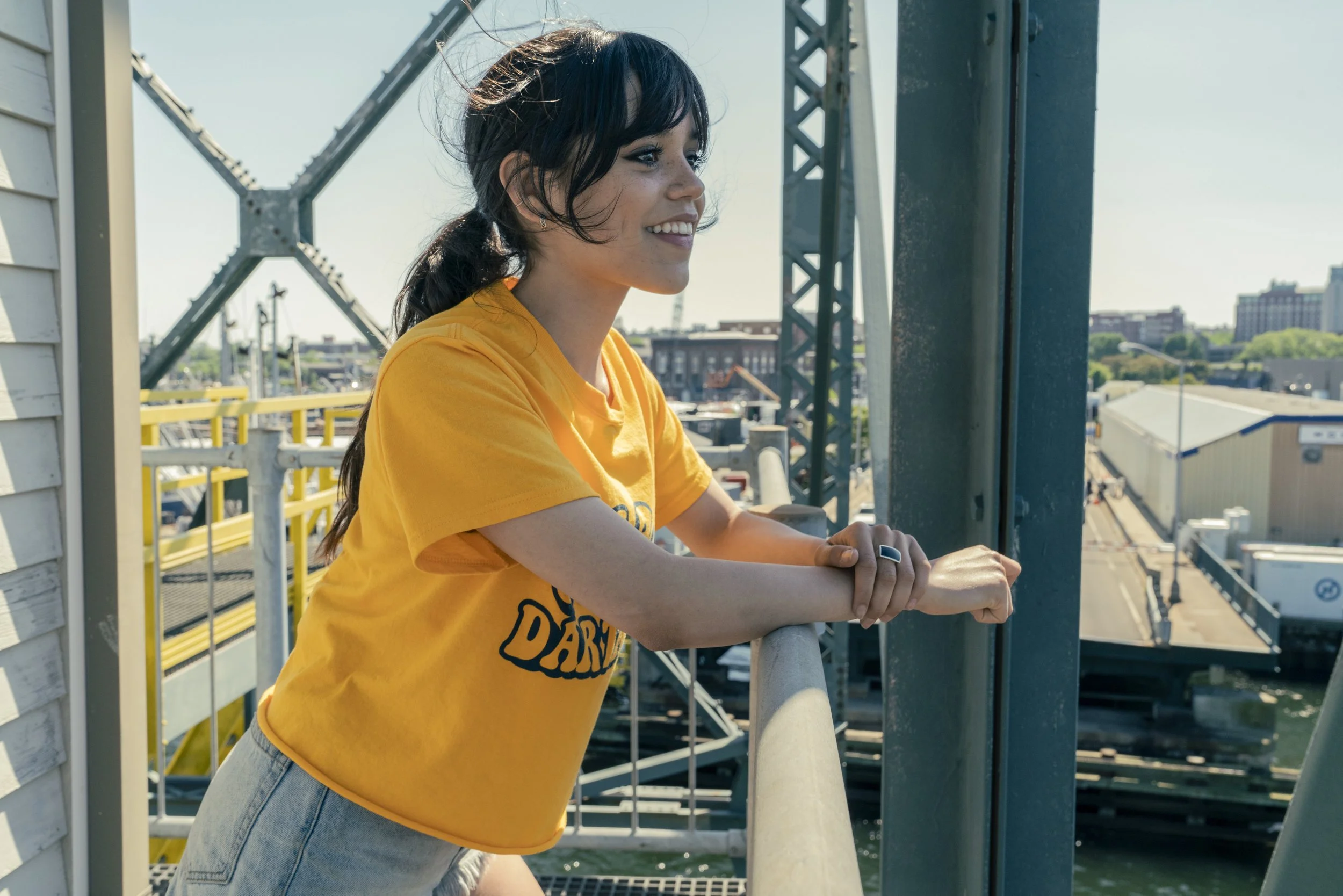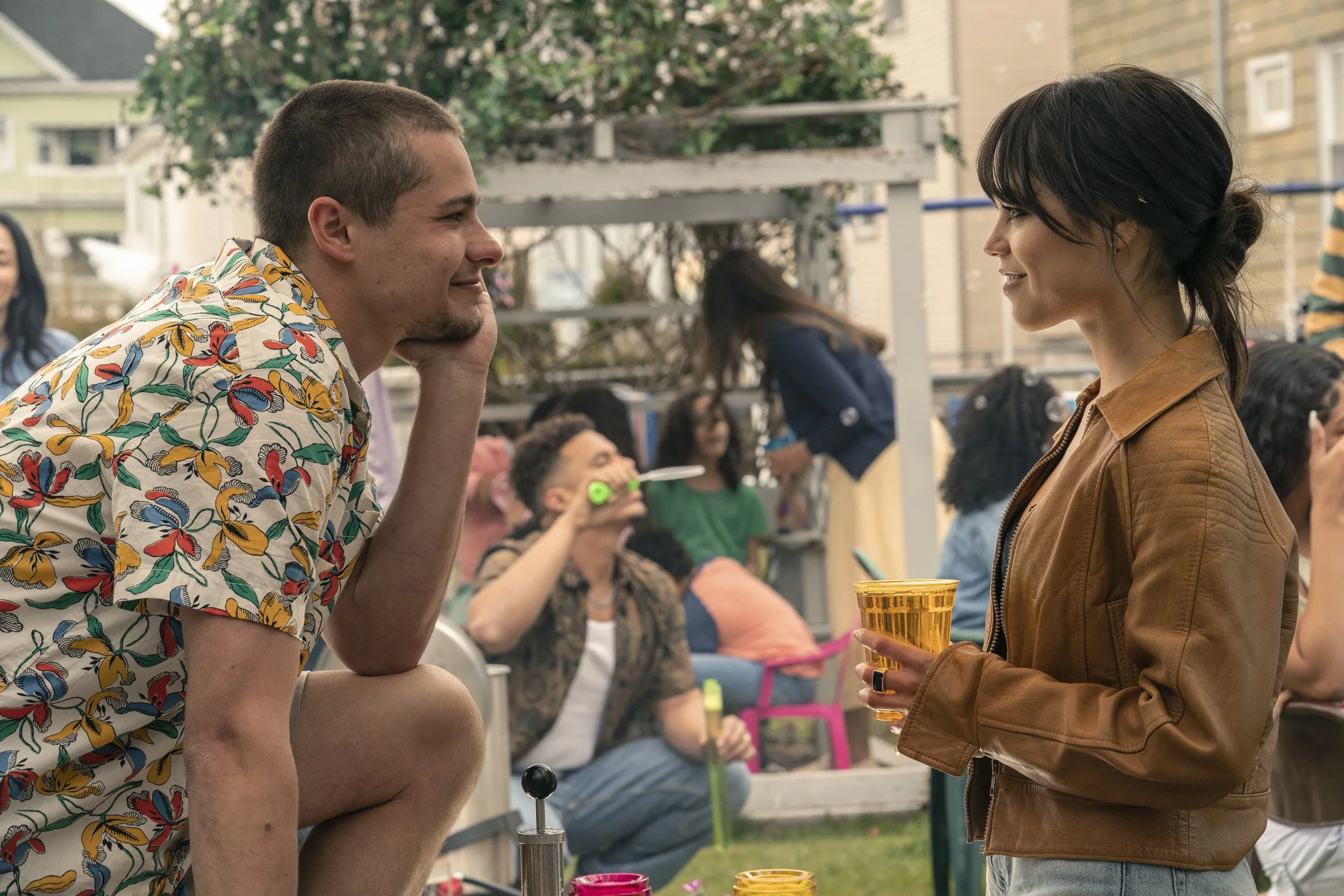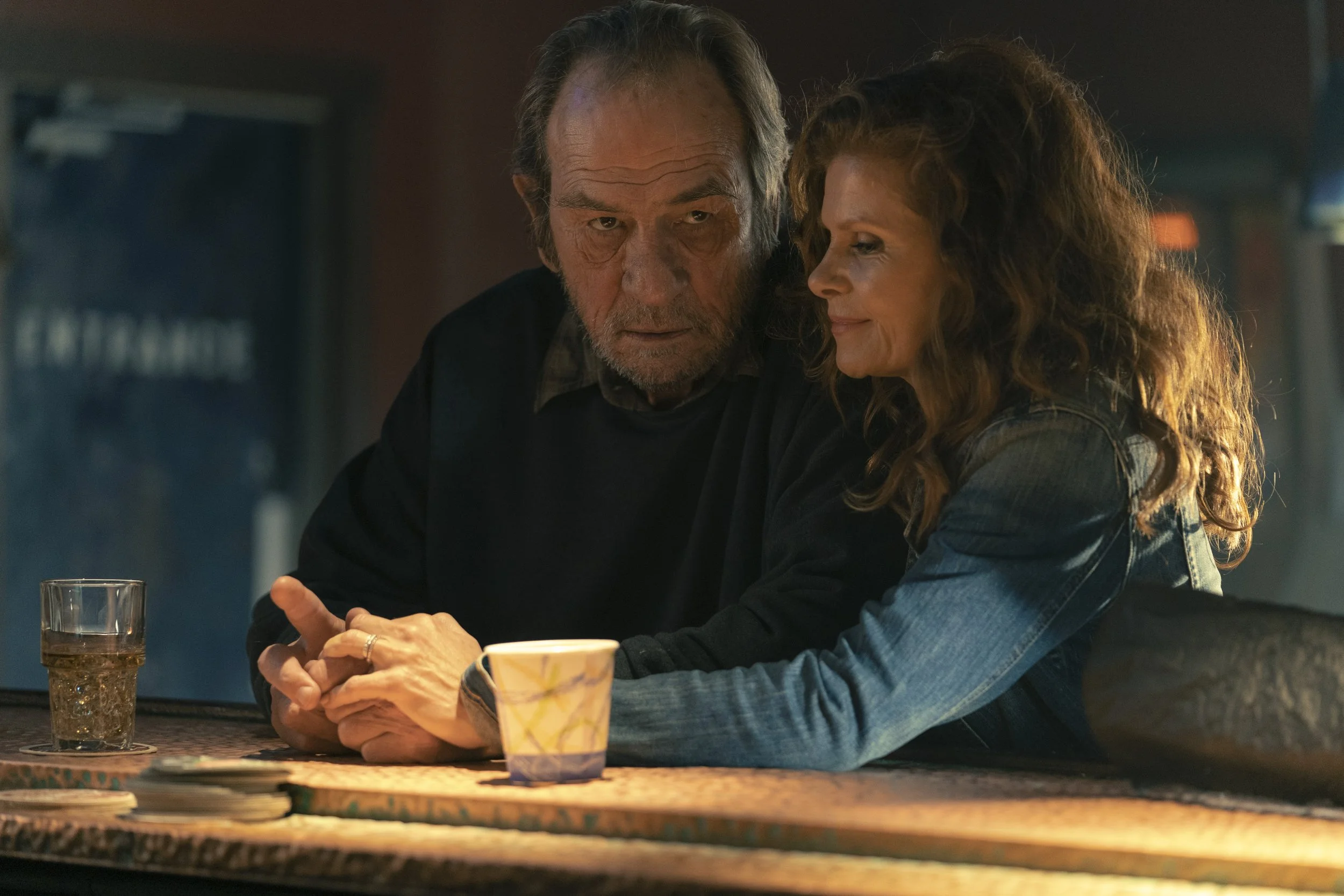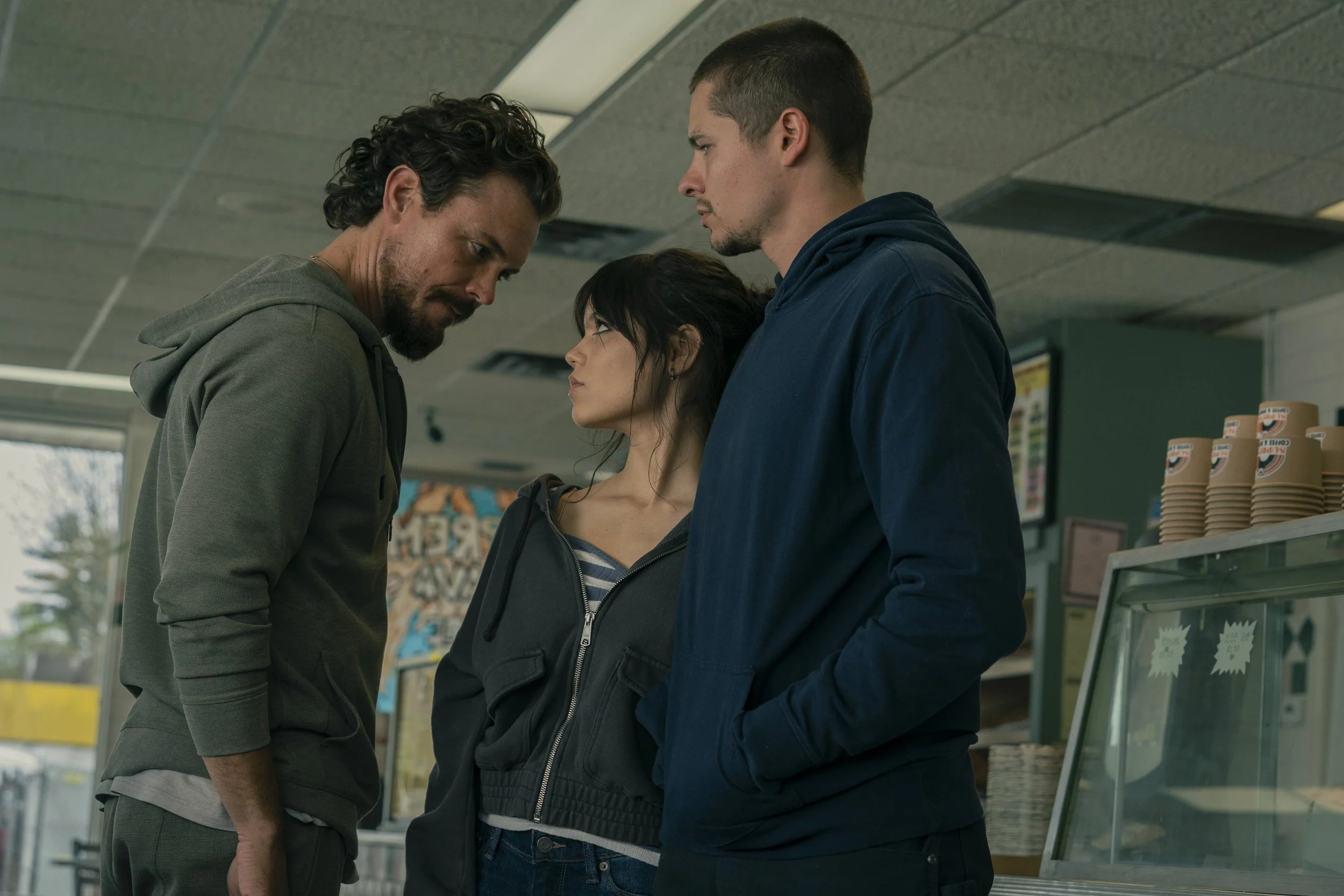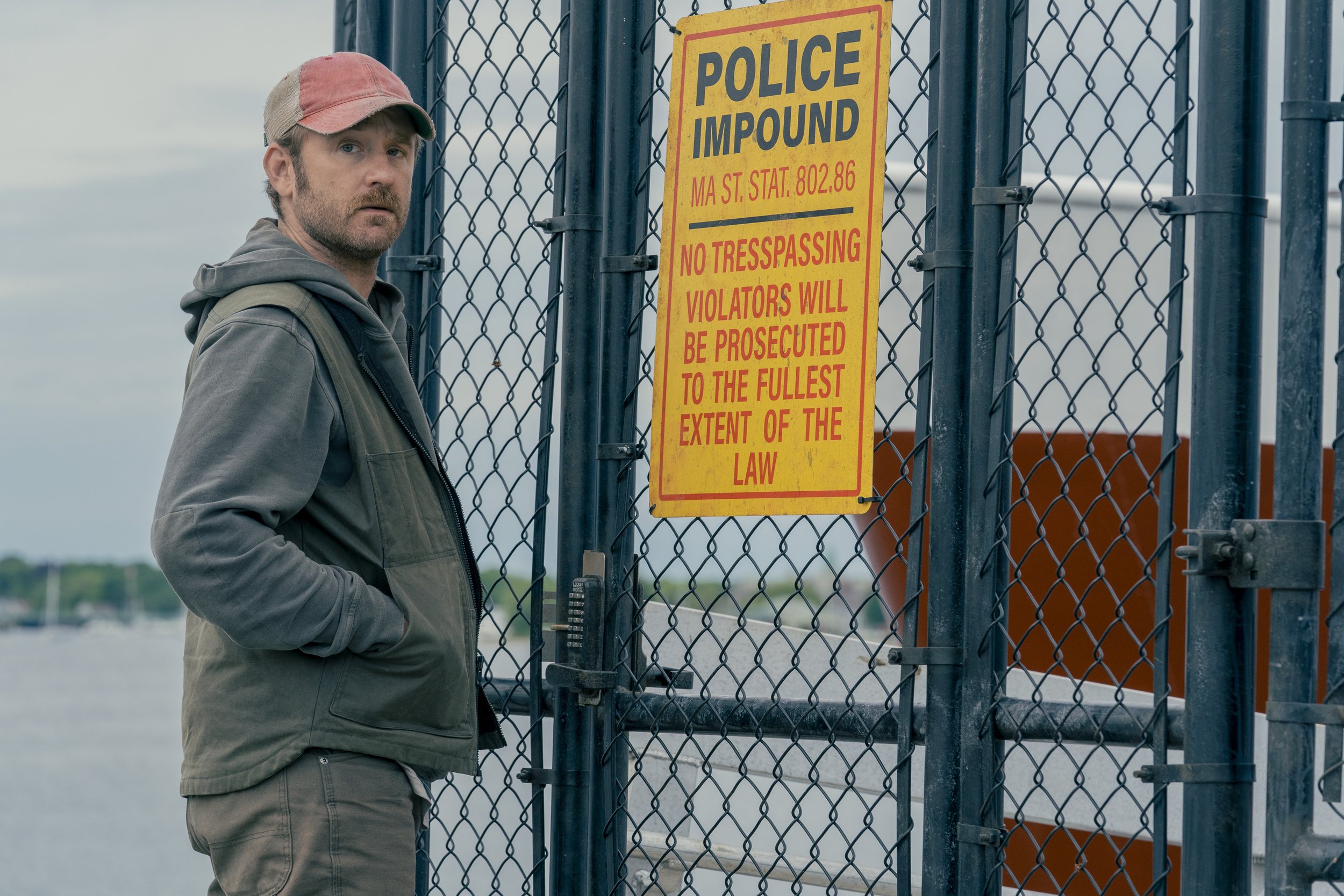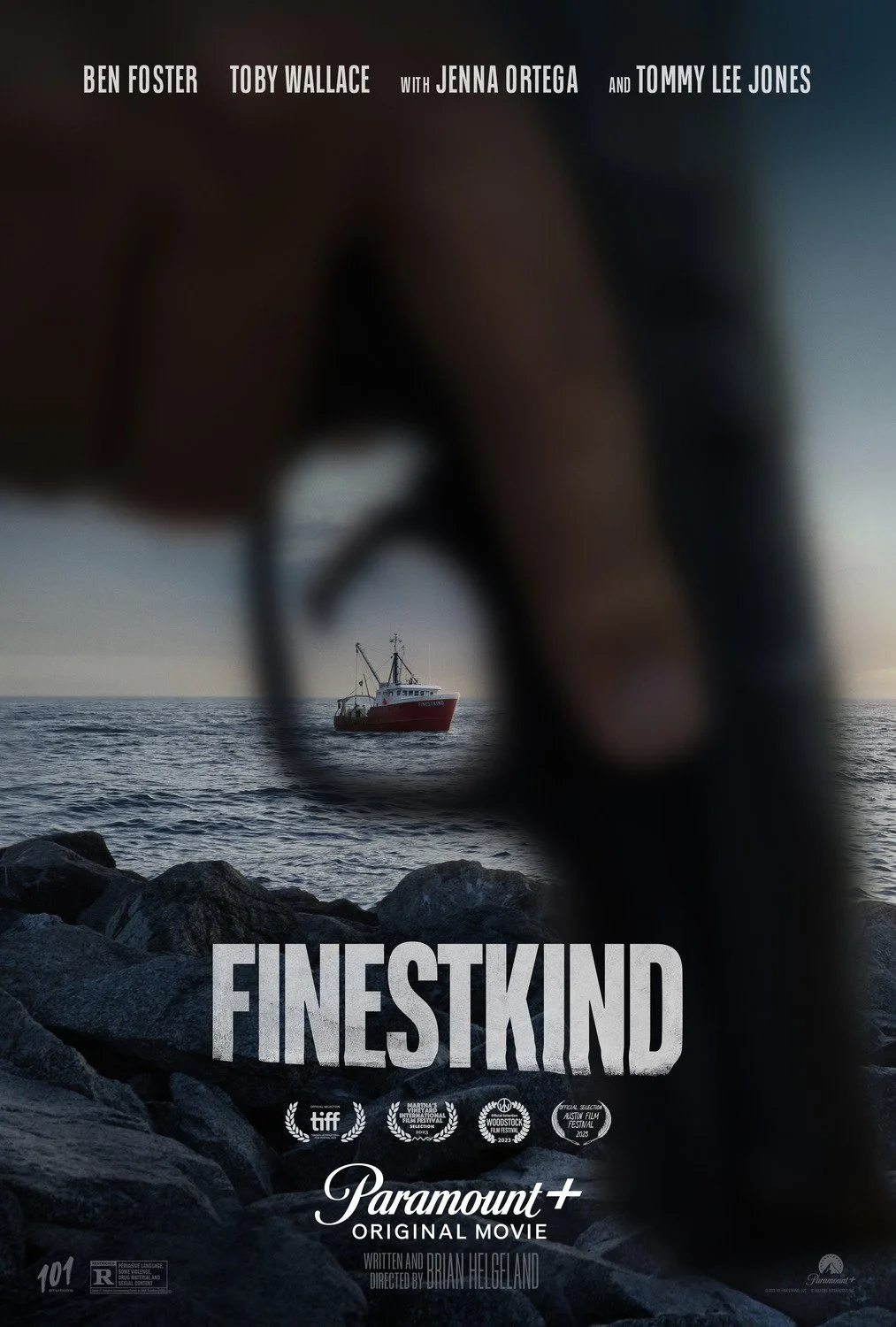TIFF 2023 Exclusive: Oscar Winner Brian Helgeland on writing & directing Finestkind
Among the films that had its World Premiere at the 2023 Toronto International Film Festival is Finestkind, written and directed by Oscar winner Brian Helgeland. The film will air on Paramount+ in 2023.
Produced by Gary Foster, Russ Krasnoff, Taylor Sheridan and David Glasser, the cast includes Ben Foster, Toby Wallace, Jenna Ortega, Tommy Lee Jones, Ismael Cruz Cordova, Aaron Stanford, Scotty Tovar, Tim Daly, Lolita Davidovich, and Clayne Crawford.
Charlie (Wallace) is looking to get away from his dull college education when he begs his older brother, Tom (Foster), to let him work on his fishing trawler for a summer. There’s no deterring him, even after their first expedition almost ends disastrously. Charlie becomes fast friends with the group, making a place for himself in New Bedford as he starts dating Mabel (Jenna Ortega), who’s trying to make her own future. In this town, scallops are gold, and more is never enough as Tom’s crew encroaches into Canadian waters to continue fishing. Trouble follows, and with debts piling up, the men are forced to come up with a way to make some fast cash. Wrapped up in a dangerous drug deal, they get more than they bargained for, forcing Tom’s father, Ray (Jones) ― famous in the community for his cantankerousness ― to step in the only way he knows how.
A native from Providence, Rhode Island, Helgeland won the Academy Award for his screenplay for L.A. Confidential. His other writing credits include such films as Mystic River, Man on Fire, Green Zone, and Robin Hood. His films as director are Payback with Mel Gibson, A Knight’s Tale with Heath Ledger, The Order with Ledger, 42 with Chadwick Boseman, and Legend with Tom Hardy.
Blackfilmandtv.com caught up with Helgeland at the festival and spoke with him on his latest film and how personal the story was to him.
What went into making this project?
Brian Helgeland: Well, mostly I grew up in this world. The town we shot in is my hometown. My dad was a commercial fisherman, my uncles were commercial fisherman, as well as my cousins. I had an uncle who didn't fish, but he installed radars on boats. That's all anyone did. We lived in this apartment when I was growing up, and my dad and uncles would be out to sea about a week at a time. It wasn't like they'd go early in the morning and come back at night. They would just go. And my dad was on one boat, my two uncles who lived with us in this two bedroom apartment were on two different boats. So there's always like some smelly salty guy in the house with a load of fish, which I didn't like.
So are you Toby's character?
Brian Helgeland: I'm a little bit Toby and I'm a little bit Jenner in a way because I'm Toby in that I was an English major and graduated from school. I didn't know what I wanted to do when I went fishing. But like Ben, because my dad had fished, but I’m also from this little town. I hate the term blue collar, but people understand what that means, I'm from this blue collar town? No one's talking about even where you're going to go to college so much. What job are you going to get? I had no idea that people made movies, and I love movies. It never occurred to me someone can make movies other than Alfred Hitchcock. His movies were always on TV. So Jenna’s character being from there and wanting to do more with herself? What's the world out there? How do I get to be part of it? People don't realize how closed off it all is. Do you think you can get a job working for the city? Because that pays really good. So it's a little bit divided up between. It’s all spread out in a way.
Having said all that and knowing the work you've done previously, what took you so long to put this story together? One would think this would have been the first one because it's personal. When people write personal stories, or direct personal stories. It's a little bit of an albatross because you want to get it out of the way. But we're here now, years later. Now you're telling a little bit of your background.
Brian Helgeland: I think you just hit on the story of the whole thing in a way. Because I wrote it 30 years ago. Write what you know, and that's what I know. No one had any interest in it. And until I sold it to the company that made it 101 Studios two years ago, I had never made a dime off it. No one had ever bought it. No one had ever optioned it or ever wanted to make it.
Not even after the success of LA Confidential?
Brian Helgeland: No. I could always get actors to read it and they would say ‘I’m in, I'm in.” For example, Heath Ledger was the first person that wanted to do it. I would try to do something with it and then I forget completely about it for five years. And I'd always think to myself, like this is the one thing I really know, and I could never make a movie out of it. And then I think like you say, get this albatross out of the way. I think the time that passed ended up being like a good thing. Because when I finally got the chance to make it, I had all this perspective on it. I didn't remember that guy so much anymore, even though it was written. It was an interesting experience that way, because that was how I was. So that's how those guys were and I remember that guy who's dead now. I don't think it would have been as good a film as far as what I could do if I made it and then.
Was Tommy Lee Jones easy to cast?
Brian Helgeland: He wasn't until I sent the script to him. He called me up after he read the script and he said, “I like it, but I have a question. I'm from Texas. I can't do a Massachusetts accent. Why in the world is a guy from Texas up in Massachusetts?” The location in the film is the number one seaport in the country. So fishermen are making money up there. So when I fished in the 80s, there was always guys from South Carolina coming up and guys from New Orleans who knew how to fish. And I said to him, because your boat sunk, you need money to buy a new boat. He's like, “Uh huh.” And I said, and the price of New England scollops is a hell of a lot higher than the price of Gulf Coast shrimp. There was a long silence. And he went, “I buy that.” And then, you came up here and you've met a woman and you got married, and he never went home, but he's stayed you fish down there. You fished up here. If I didn't have an answer for that, he would have said no.
How important was it to put in the certain jargon that fishermen would understand?
Brian Helgeland: Yeah. First of all, I have an obligation as a writer to try to try to get it right. I did a film called Man on Fire that I wrote and that Tony Scott directed. And the first thing we did was, we interviewed Mexican kidnappers. We interviewed guys that had been in prison. We've done kidnappings, police who understood how was the money transfer, because we didn't want to make it up, and we knew it was more interesting how it really worked than how we would in the dumb way we would invent it. The great thing about movies is it takes you to a place you can’t go, right? The obvious thing is Star Wars where you go to outer space. But that's this should be the same with this.
If you're the movie goer who gets to go on a fishing boat and beyond deck and learn how to catch scallops, that's compelling. The first notes you always get on this from anyone who read it studio wise would be that it's like a documentary about fishing. That's the great thing about a movie is you can take someone and say, “Hey, we're gonna go show you what ancient Egypt was”, and “we're going to show you what spaces is and we were going to take you on a fishing trip.” So I think it makes it more interesting and makes you understand the characters without them having to explain themselves sometimes.

